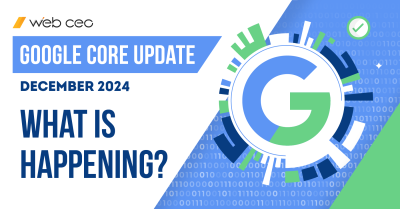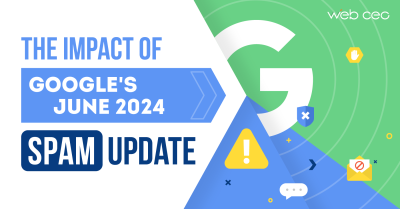
Google changes its algorithm almost every day. However, search results were affected greatly by some major updates this past year. When you know the dates of the most important updates, you can understand changes in your rankings and organic website traffic and ultimately improve search engine optimization. Let’s see how Google changed SEO in 2013:
Panda
The year started with the animal that frightened every search marketer. The Google Panda update was meant to stop sites with low quality content from working their way into Google’s top search results. Websites that used scraped content were penalized by Google and disappeared from the Google search results pages. Google says it only takes a few pages of poor quality or duplicate content to hold down traffic on an otherwise solid site, and recommends such pages be removed, blocked from being indexed by the search engine, or rewritten.
Now Panda is a part of the Google algorithm. This filter makes the web a better place: good search marketers produce more high quality content and steer clear of any duplicates.
Penguin
In May, Google continued the war against low quality and rolled out a big Penguin update. This was aimed at websites with poor backlink profiles. Since then, the term ‘toxic link’ has become a search marketer nightmare. WebCEO reacted to the Google Penguin update with a great new tool that helps to clean up one’s backlink profile.
Link building will now never be the same after the Google Penguin update. Now SEOs carefully investigate who links to them and they disavow really toxic links to secure rankings.
Link Schemes document update
This was not a Google algorithm update, but it was very important. After Google updated the Link Schemes section of its Webmaster Guidelines, it’s been against Google’s rules to:
- Use guest posts for pure link building.
- Post press releases with keyword anchor text.
- Add optimized anchor texts to your forum signatures.
- Embed links in widgets distributed on multiple sites.
- Add sitewide links on multiple websites.
‘Not provided’
Late in September, Google confirmed that it would be encrypting all search data, regardless of whether a user was signed in or not. This means that now you can’t know what keywords searchers used to enter your website.
You can still view search terms at the Google Webmaster Center, but only the top 2,000 terms per day and only going back for 90 days.
Hummingbird
The Google Hummingbird update was rolled out to improve user experiences. As the number of mobile searches grew and voice search has been used more and more, Google started to pay more attention to factors such as a site’s theme, long tail keywords and structured data.
The WebCEO developer team promises to add more tools for you in 2014 and they will enhance the existing ones. Our new Internal Links Optimization tool will be available to you in late January.



